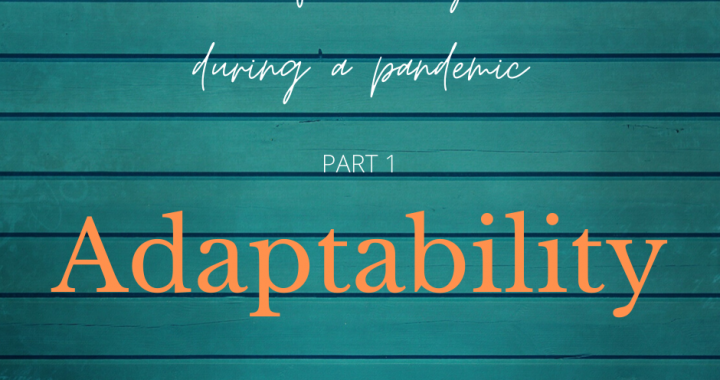ADAPTABILITY
We talk about resilience all the time. Especially how important it is to be resilient during periods of change.
Organisations spend a fair bit on ensuring their leadership teams receive resilience training to be able to effectively lead the organisation while facing the challenges of doing business in an ever-changing environment.
Resilience, in its simplest form, is defined as the ability to bounce back following a setback.
Bounce back implies that you know what you’re bouncing back to.
It implies that something has pushed you off a path, or a barrier has emerged that threatens your progress and that you need resilience to pull yourself back, break down the barriers or climb over the bumps so that you can continue towards a specific and known direction.
What is tricky with this pandemic is that we’re presented with a situation where we just don’t know what the “new direction” will be.
- What is “the new normal”?
- What will it look like?
- How will your work, your life, your commute, your leisure or your socialising change?
- What are you bouncing back to?
Since we can’t answer these questions with certainty, we’re forced to look for a complementary strategy to resilience. Something that will help us navigate the fog and discomfort of uncertainty. It’s called adaptability – the ability to be flexible and to try out various options or solutions even as the landscape changes.
We need to be both resilient and adaptable.
We need resilience to be able to bounce back and quickly recover from setbacks while pushing through to achieving a set path or goal.
An example of this is when organisations constantly change priorities or have frequent restructures that force teams to disband, regroup and relearn what to work on and with whom. Employees must be resilient to be able to embrace a new team set up or new leadership style while progressing the objectives of the organisation.
And we need adaptability to be able to adjust quickly and make the most of an unknown future.
An example of this is the switch to having whole offices working remotely. In the process we’ve had to learn to work from home, manage the blurring of lines between work and home, learn to use new tools and interact with our colleagues in new ways. We’ve had to adapt, with no understanding of how long we will be in this state or what the future will look like.
As we move into the “opening up” phase, adaptability will mean:
- Being comfortable with being uncomfortable and moving ahead anyway
- Being open-minded to see opportunities others may not see
- Being calm and flexible when faced with surprises
- Exploring new ways of dealing with new challenges
- Being positive and optimistic that you can find a way despite the uncertainty
- Thinking creatively and exploring approaches not tried before
- Making quick decisions to move you forward while being ready to pivot as you learn
- Being able to take calculated risks
In concluding, here are three quotes on adaptability that you can ponder…
It is a wise person that adapts themselves to all contingencies; it’s the fool who always struggles like a swimmer against the current.
– Anonymous
The most important factor in survival is neither intelligence nor strength but adaptability.
– Charles Darwin
Change is the only constant in life. One’s ability to adapt to those changes will determine your success in life.
– Benjamin Franklin
